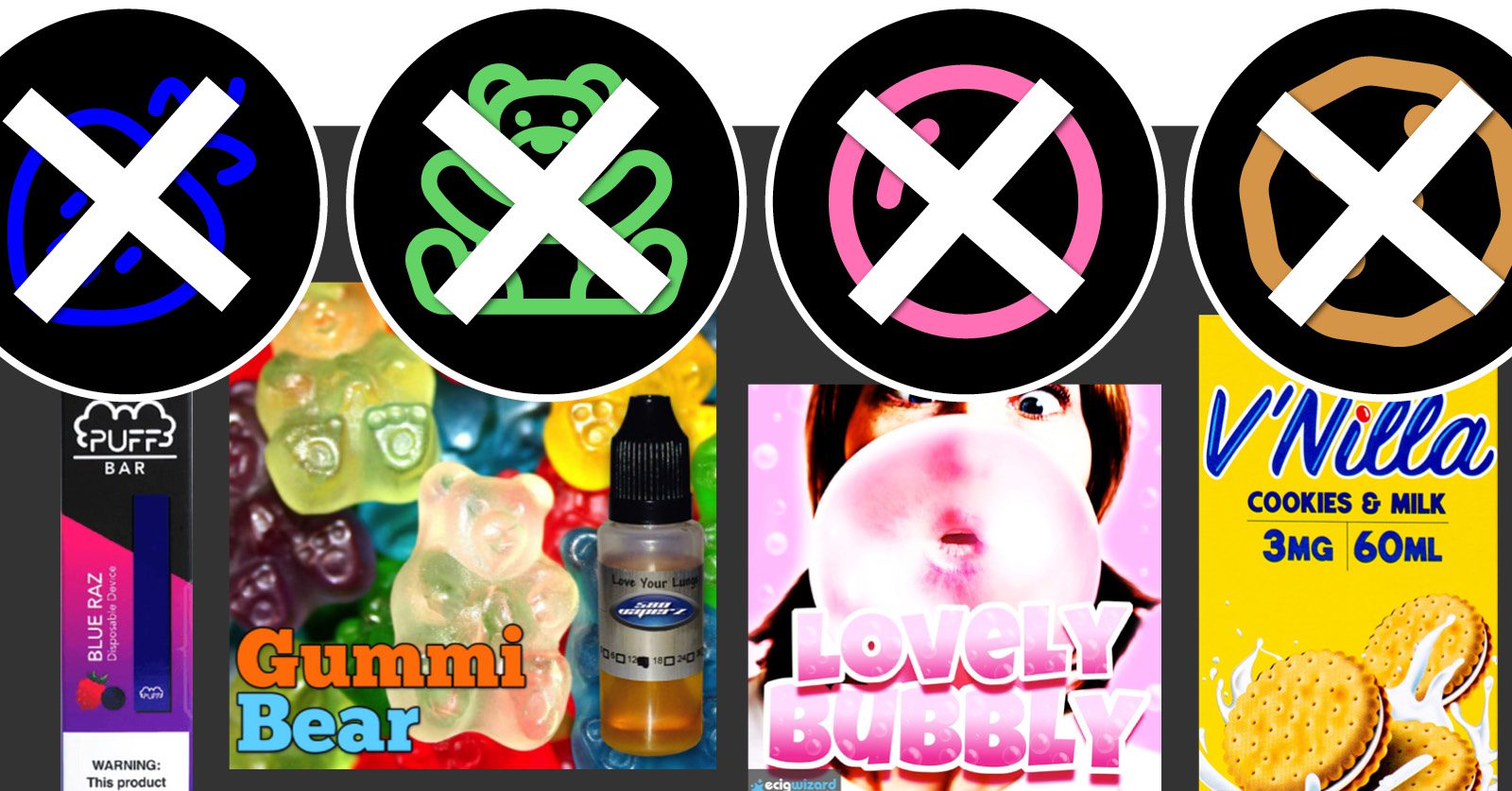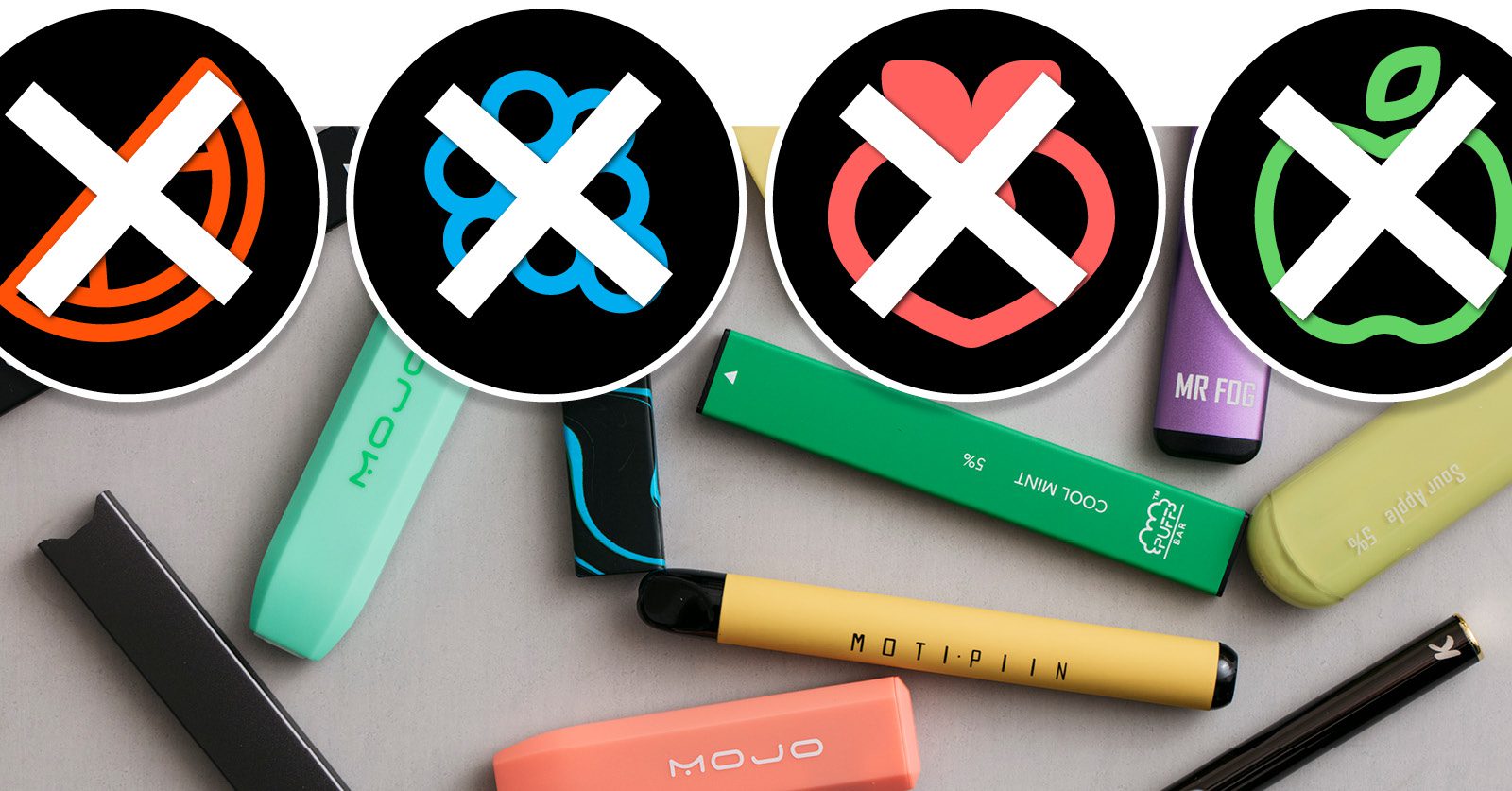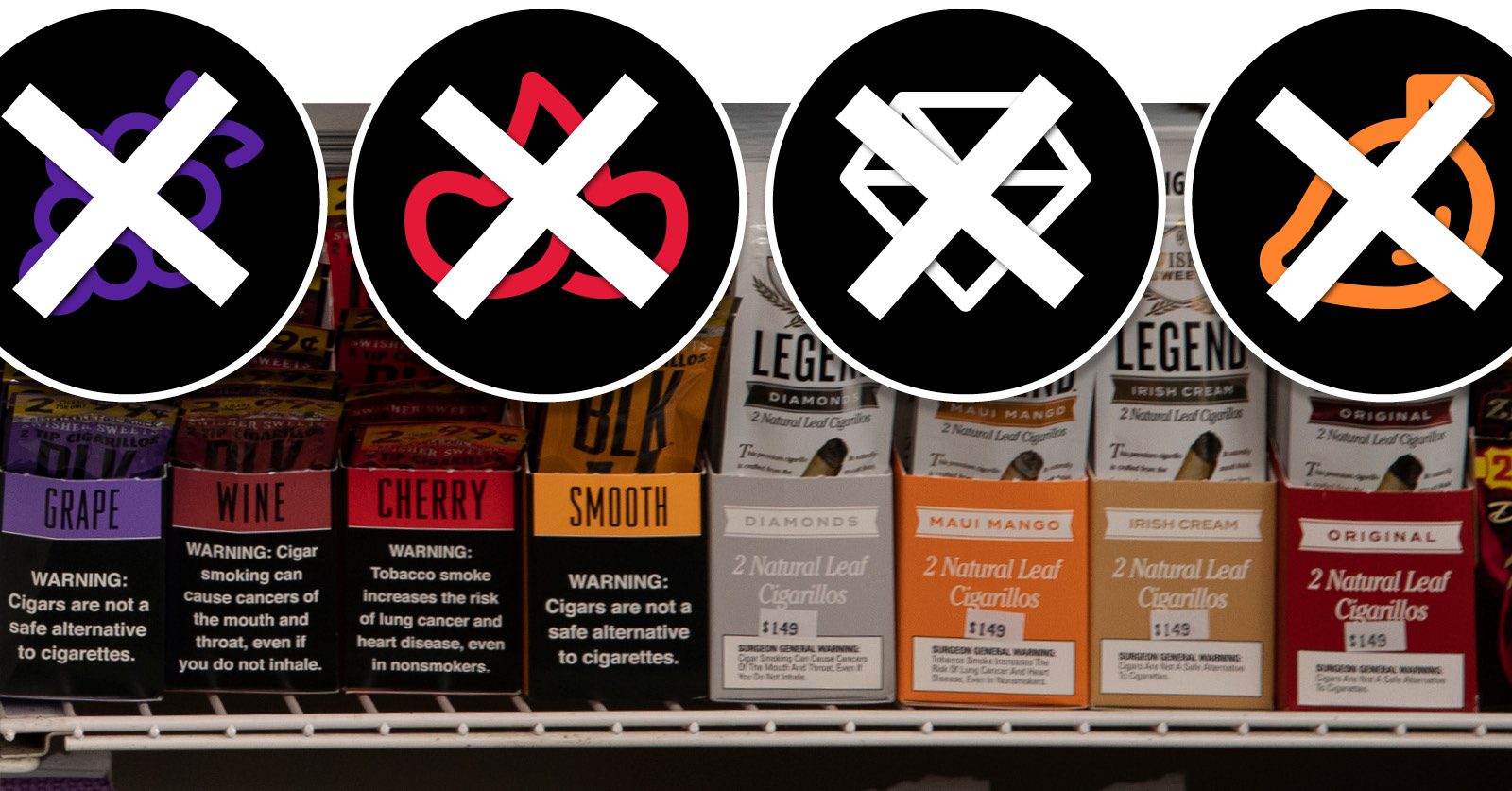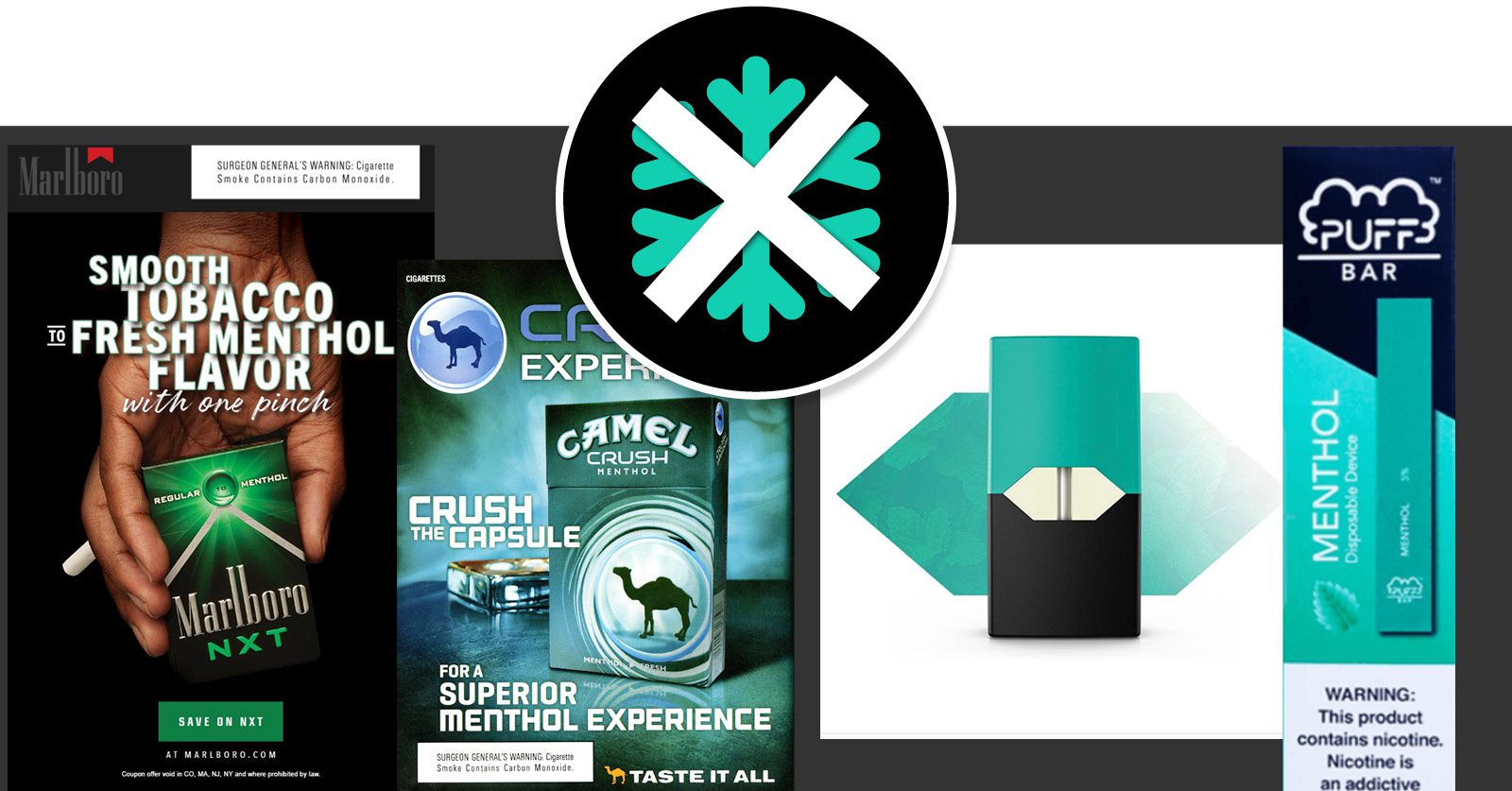Not So Sweet: How Tobacco Companies Use Flavors To Addict Our Kids

As the dangers of traditional tobacco become well-known and well-regulated, tobacco companies are finding new ways to hook a new generation of customers: flavored tobacco and nicotine products. Despite the Food and Drug Administration (FDA) banning cigarettes with flavors in 2009 and certain vapes in 2020, many other flavored products such as filtered cigars, disposable e-cigarettes, menthols and other alternative-nicotine products have made their way into stores and into the hands of minors. Here’s how Big Tobacco is pulling the strings.

E-Cigarettes & Vapes
Electronic cigarettes and vapes are still relatively new and have rapidly lured young tobacco customers. The youth vaping epidemic is largely fueled by flavored products and threatens to reverse years of progress.
The FDA was quick to act against cartridge-based e-cigarettes being flavored — however, loopholes in policies have left disposable vapes largely unregulated. These products are packed with nicotine, exceeding a higher nicotine concentration than their banned predecessor, JUUL, and often contain more nicotine than an entire pack of cigarettes.
These devices, disguised in bright colors that resemble candy, also retail at a low price point and come “pre-charged and ready to use.” Many tobacco retailers have even gamified the purchase of disposable e-cigarettes with marketing promotions urging customers to “try them all.” They’ve also used social media, such as Tik Tok, to promote their deadly products to a younger audience.
While many adults also enjoy the flavors, that is not the customer base Big Tobacco is targeting with their schemes. A study from the World Health Organization (WHO) Study Group revealed that the loyalty of teens ensures a larger profit for a longer period of time.
In 2022, 14.1% of Oklahoma high school students identified as current e-cigarette users — and 85% of them exclusively used flavored products.
Though the FDA has exclusively limited the purchase of all e-cigarettes to customers 21 and older, teens are still able to get their hands on them. Other minors can purchase vapes from “social sources” who purchase them from the internet or directly from a retailer. The only way to prevent continued use by underage patrons is to call for total bans against flavored disposable products.
Because e-cigarettes are a comparatively new product, research about the long-term adverse health effects is still being conducted. However, certain artificial flavors have been linked to health issues, including decreased lung cellular reproduction, inflammation and decreased immune system response. The U.S. Surgeon General has also deemed youth vape use unsafe — linking it to developmental disorders, memory loss and anxiety or depression.

Cigars
In the past, cigar manufacturers designed flavored cigars as “starter” cigars — with the smooth flavor masking the harshness of the tobacco. Recently, cheap flavored cigars and cigarillos have seen a spike in sales — with the low price point and candy flavor not-so-subtly aimed at a younger, impressionable audience.

Menthol
Tobacco companies know that to get new customers — especially young ones — addicted to tobacco, they must make it more accessible. The tobacco industry has a long history of using flavors to hook kids and novice users. Fortunately, the 2009 flavor ban put an end to most flavored cigarettes. However, one flavored cigarette legally remains on the shelves: menthol.
Menthol is a chemical compound that numbs the throat and masks the harsh burn from tobacco. Since menthol contains more than artificial flavoring, the same ban does not apply to them. A study from 2021 found that 41.1% of high school smokers reported using menthol cigarettes.
The Future of Flavors
A proposed ban by the FDA aims to eliminate flavored products, including menthol, making the barrier for entry much more difficult for minors. If successful, the ban is a massive step toward a tobacco-free future.







